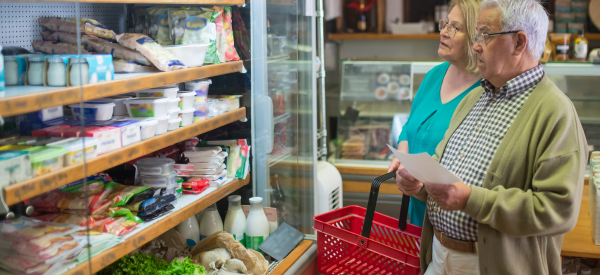The Supplemental Nutrition Assistance Program (SNAP) is vital for many households, including seniors and their families. It helps make nutritious food more affordable and accessible. However, recent changes have reduced SNAP benefits for many, creating new challenges.
Seniors often live on fixed incomes, while families may be balancing multiple expenses. Reduced SNAP support can make it harder to maintain a healthy diet, which may increase the risk of nutritional gaps and related health concerns.
Understanding available resources is crucial. Seniors and their families can explore alternative food assistance options offered by local food banks, community organizations, and government programs to help bridge the gap. This guide will provide valuable information and support to navigate these changes effectively within the Chicago area.
Understanding SNAP Program Changes
Recent changes in the SNAP program have impacted seniors and families across the community. Understanding these updates is key to ensuring continued support.
On November 3rd, according to USA Today, the Trump administration announced it will issue partial payments to SNAP recipients in November due to the government shutdown. Specifically, the administration will use emergency reserves to cover 50% of eligible households’ current allotments, leaving many with reduced food assistance during a critical time.
It’s important for seniors and families to understand how benefits are calculated. Factors such as income and household size play a role, and these may affect the amount of support they receive, especially during periods of disruption.
Key points to keep in mind:
- SNAP eligibility requirements can change, especially during emergencies.
- Household size and income determine benefit amounts.
- Seniors and families should review updates regularly and seek local resources if benefits are reduced.
Immediate Steps After SNAP Benefit Reductions
Reduced SNAP benefits can create immediate challenges for seniors and their families. Taking proactive steps can help lessen the impact and ensure continued access to food support.
Start by verifying any changes to your household’s SNAP benefits and confirming current eligibility.
Here are a few actions to consider:
- Contact your local Illinois Department of Human Services (IDHS) office for clarification or assistance.
- Update financial or household information if your circumstances have changed.
- Explore additional food support offered by community organizations throughout the Chicago region.
Acting quickly can help households adjust to reduced benefits and connect with the resources they need.
Local Food Support Across the Chicagoland Area
Seniors and families in the Chicagoland area who are facing reduced SNAP support still have access to a wide range of food assistance programs. From community pantries to mobile meal distributions, these resources offer timely relief and help prevent gaps in access to nutritious food. Many programs are designed to be easy to access, often requiring minimal paperwork. This is especially helpful for households dealing with urgent needs. Additionally, some older adults may qualify for Illinois-based food programs that provide extra support for grocery and nutrition costs.
Food Resources for Families in Cook County, IL
- Niles Township Food Pantry: Provides weekly groceries and emergency food support for residents of Niles Township, including Skokie, Lincolnwood, and Morton Grove.
- North Park Friendship Center: Offers walk-in groceries, home deliver for seniors, and community meals. Serves North Park, Albany Park, and nearby neighborhoods.
- Humans at Help Foundation: A welcoming, judgment-free food pantry offering fresh produce and shelf-stable groceries.
Food Resources for Families in Lake County, IL
- Moraine Township Food Pantry: Offers weekly groceries and emergency food support for residents in Moraine Township. Freedom Home Care has partnered with them on community outreach.
- Vernon Township Food Pantry: Provides non-perishable groceries and household essentials to residents of Vernon Township.
- Community Action Partnership of Lake County: Provides emergency food boxes, pantry referrals, and support services for low-income families and seniors in Lake County.
Statewide Tools to Help Find Food Assistance
- We Got You Illinois (Find Food Tool): Search by ZIP code to locate pantries, meal sites, and grocery programs across Illinois.
- Greater Chicago Food Depository (Find Food Tool): Helps Cook County residents locate nearby pantries, senior food boxes, and mobile distributions.
- Northern Illinois Food Bank (Find Food Tool): Offers access to hundreds of partner pantries and mobile markets in suburban and rural counties.
Staying Informed
Staying informed helps seniors and their families navigate potential benefit changes effectively. Regularly checking government websites and utilizing online resources ensures they can make timely decisions about their food assistance needs.
At Freedom Home Care, we’re here to support seniors and their families through every challenge. If you need help navigating these resources, don’t hesitate to reach out.



